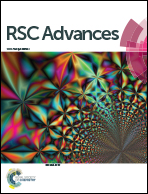Nutrimetabolomic analysis provides new insights into spermine-induced ileum-system alterations for suckling rats
Abstract
This study aimed to investigate the effects of spermine supplementation on the ileum metabolism of suckling rats. Rats were intragastrically administered with 0.2 μmol g−1 body weight of either spermine or saline for 3 or 7 days. The ileum samples taken 24 h after the last spermine ingestion were analyzed by NMR-based metabolomics. The results showed that the villus width, surface area, and crypt depth of the rat ileum were increased by 18.0%, 33.3%, 15.7%, respectively, and the specific activities of sucrase and maltase in the rat ileum were also significantly increased by 789.4%, 44.9%, respectively, but the activity of lactase and alkaline phosphatase were decreased by 49.9%, 35.5%, respectively (spermine group relative to control group) and the villus width, surface area, and crypt depth of the rat ileum were increased by 15.1%, 33.3%, 26.3%, respectively [duration extension of spermine (7 days) relative to 3 days] (P < 0.05). Spermine also increased ileum choline, amino acids, inosine, lactate, myo-inositol, scyllo-inositol, and trimethylamine-N-oxide levels and decreased the level of lysine (P < 0.05). The ileum levels of α-glucose, aspartate, creatine, D-galactose, formate, glutathione, glycerolphosphocholine, lipid, and tyrosine were also significantly affected by spermine supplementation (P < 0.05). Collectively, spermine ingestion induces the morphological and common systemic metabolic modifications characterizing the ileum postnatal maturation suggesting the important role of spermine. The metabolic variations could be attributed to functional variations in lipid metabolism, energy metabolism, amino acid metabolism, gut microbial activity, osmoregulation, and oxidative protection.


 Please wait while we load your content...
Please wait while we load your content...